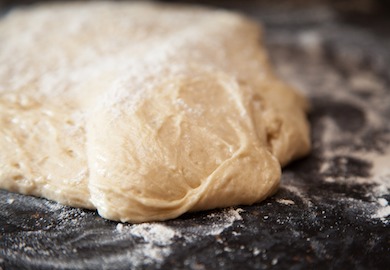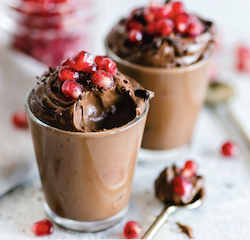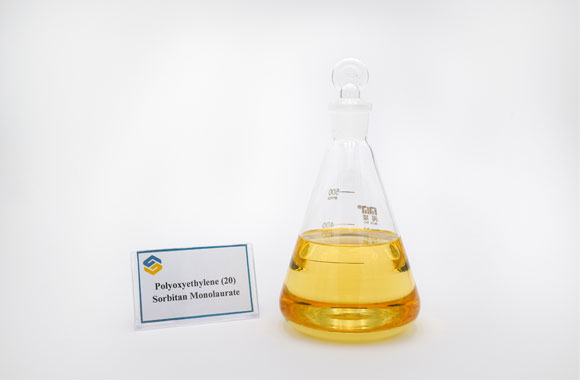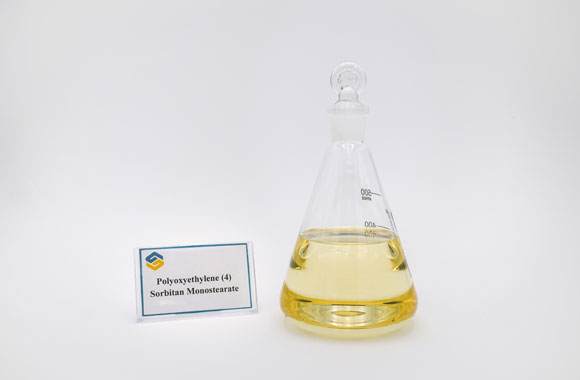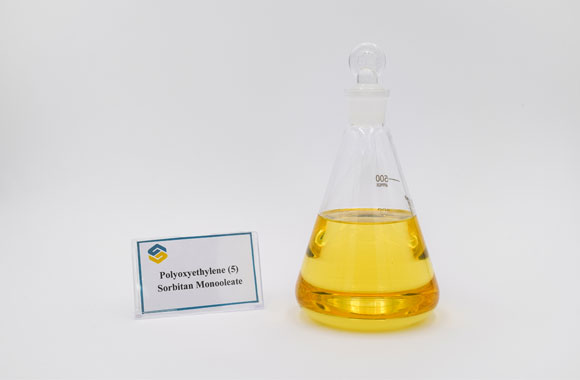Technical Information of Polysorbate 60
According to GB25553-2010, other parameters are available upon request.
Parameters | Unit | Standard value |
Acid value | mg KOH/g | ≤2.0 |
Saponification value | mg KOH/g | 45~55 |
Hydroxyl value | mg KOH/g | 81~96 |
Moisture | w/% | ≤3.0 |
Residue on ignition | w/% | ≤0.25 |
Arsenic | mg/kg | ≤3 |
Pb | mg/kg | ≤2 |
Oxyethylene | w/% | 65.0~69.5 |
Polysorbate 60 Formula

Advantages of Polysorbate 60
It is a popular food additive with various functions to improve and optimize formulations
Polysorbate 60 can be widely used in food, cosmetic, pharmaceutical, and industry
What Is Polysorbate 60 In Food?
Polysorbate 60 is a popular food additive. It can effectively improve the human body's absorptive capacity over liquid paraffin and fat-soluble substances. You can find the wide uses of emulsifier polysorbate 60 in cake, protein drinks, and ice-cream formulations; the emulsifier polysorbate 60
can also act as a foaming agent in alcoholic drinks, and as a dispersant in candy making.
Polysorbate 60 VS 80
Belonging to the category of polyoxyethylene sorbitan fatty acid esters, polysorbate 60 and 80 share both similarities and differences.
From the Appearance:
While polysorbate 60 appears to be a yellowish waxy solid at room temperature, tween 80 is an amber viscous oily substance.
From Performance:
Tween 60 is easily soluble in water, methanol, ethanol, isopropanol, and other solvents, but it is insoluble in mineral oil and dynamic oil. It has excellent emulsifying properties, wetting, foaming, diffusion, and other functions. Similar to polysorbate 60, tween-80 is easily soluble in water, methanol, ethanol, and insoluble in mineral oil.
From Application:
In addition to its function as a food additive, polysorbate 60 is well-known for its uses as a softener and antistatic agent in the textile industry. It is a component of pan spinning oil and a softener for the fiber after processing, which can eliminate the static electricity of the fiber, improve its softness and give the fiber good dyeing properties.
Similar to polysorbate 60, polysorbate 80 is also widely used as an emulsifier, dispersant, wetting agent, solvent, and stabilizer in medicine, cosmetics, food, and other industries. It can not only work as a stabilizer and foaming aid in the production of polyurethane foam but it can also be used as an antistatic agent in synthetic fiber. The polysorbate 60 uses can also be found in the production of photographic film and in the process of fabric waterproof emulsifying silicone oil.
 English
English 日本語
日本語 한국어
한국어 français
français Deutsch
Deutsch Español
Español italiano
italiano русский
русский português
português العربية
العربية Nederland
Nederland

